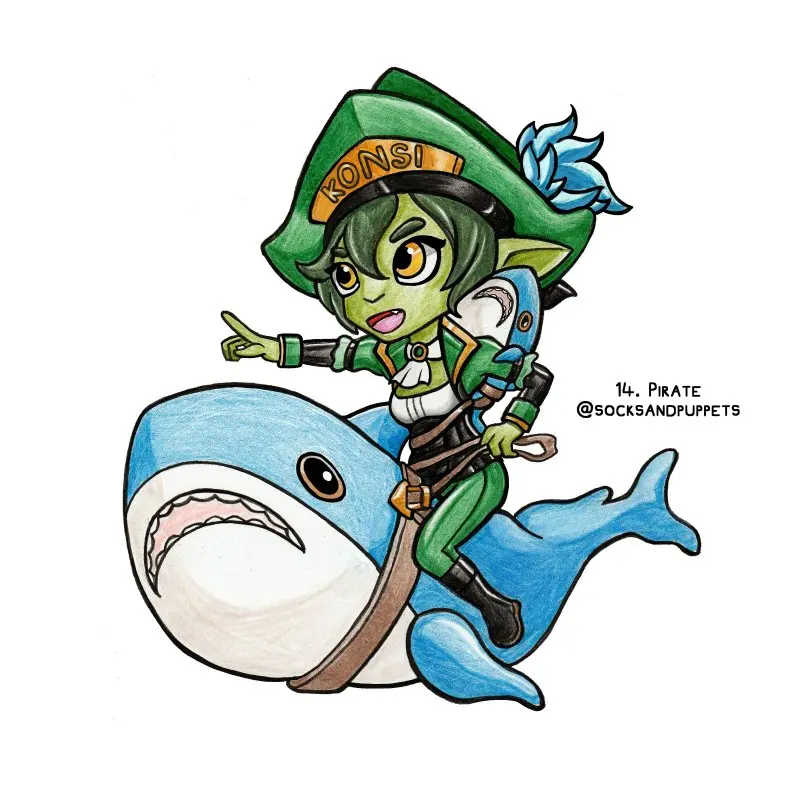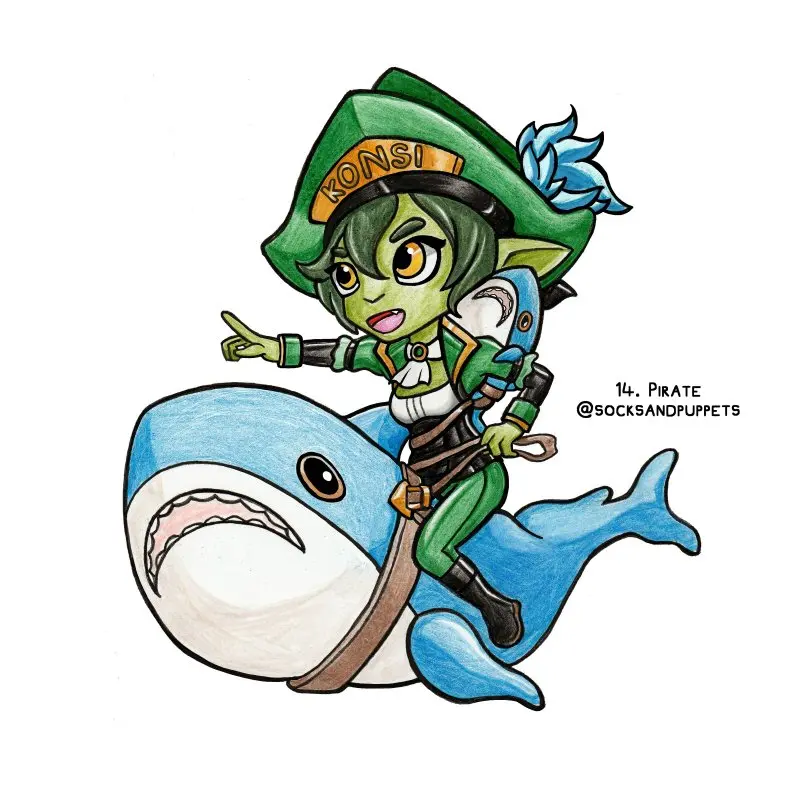Heraldry be like that sometimes.

I make comics sometimes: https://linktr.ee/ahdok
Heraldry be like that sometimes.

Generally speaking, this is something that an experienced GM can handle in session zero. An important part of session zero is establishing expectations for the style of game to be played: Things like “are the player characters friends?” “Is PvP encouraged or discouraged?” “Do I as a DM want the characters to stick together?” etc etc.
Generally when running DnD, I request of my players to design characters who:
Fundamentally, most DnD games are the story of a group of friends going on adventures together. If your DnD game is the story of a group of friends going on adventures, then it’s extremely beneficial for your players to build characters who will be friends, and who will go on adventures. Together.
It’s going well, I think. We’re on top of it. I’m not panicking.
There’s a Konsi in the invitation art. I’ll colour her in so y’all can spot her.

The drawing prompt was “existential dread” The runic scribble around her is actually just all her negative thoughts - they’re more readable in the light version.

I like that kind of thing in a lot of settings, especially more philosophical or metaphorical settings.
DnD always feels to me like it’s a world where the metaphysics are defined by the players having an hour long argument at the table about “what RAW says”, while people look up rules in books. Back in my 3.5 days, someone would manage to find a ruling in an obscure 3rd party book, in 4th edition, you’d find some hard definition in the source material. In 5th edition, someone will find a tweet from Crawford, and the table will agree it’s stupid and decide the opposite is always true.
For my experiences in D&D, the question of “whether x counts as y” is a definition that sticks to the universe itself - there aren’t many examples of metaphysics in D&D where the answer varies by intent. (I’m sure there are some though!)
Caveat: As with everything I say about D&D rules and definitions, this is not advice, just how I think of things, and the objective correct answer is always “whatever works at your table.”
Konsi did once break the plot of an adventure wide open by having the right detection magic running, for entirely unrelated reasons. Just realized the plot-twist 10 sessions early…
Oh yes, although with roleplaying setting metaphysics, it’s probably good to define this to be true if you’re using it in your game. (To make sure it interacts with the rules correctly and has the right keywords etc etc.)
For example if you cast “detect poison” do you detect bottles of alcohol, or a hidden wine cellar, etc etc. If your DM has never considered whether or not alcohol is a poison it probably wouldn’t occur to them to mention it, but if they have then they might!


While I have not drawn a comic of it, I can say that Konsi would have previously provided Razira permission to pick her up, for any reason whatsoever. (Also she’s secretly enjoying herself here.)
Ah, I’ve been super busy with planning a wedding! The Konsi is continuing though, just slooow…
I also recently transferred all my notes from my 10 year old, completely full, notebook to a new one, and… I think I might have enough plans for about 100 Konsi comics… (There are 11 plotlines I have ideas for.) Here’s a picture of what my new ideas notebook looks like.
This part of the notebook is for generic comic ideas - the ones I draw in the in-between weeks, so there’s no worry of plot spoilers in this image. My notebook is a constant companion, and ideas for jokes go into it whenever they come to me. Some are fully formed and ready to go, some are half-formed and need workshopping before I could make a comic out of them. Some of them are probably so bad I’ll never use them, but sometimes seeing the note at a later date inspires a new idea.

Sorry it’s been so long, I’ve been rather busy and have had less time to draw (I’m planning/prepping a wedding.) - I hope to get back on the wagon again though.
Anyway, here’s a bonus Konsi.



The previous comic (not a DnD comic… although technically I did draw a Konsi in it hm.) was comic 1000, so I took my time over it.


Well if you’re looking at my comic you might know why I took my time over the last one. We’re back to normal service now.
Normal service includes a complimentary Konsi.



it’s based on the Blahaj, I tried to get the expression as close as possible. :)


Konsi is exactly the kind of person to misinterpret her instructions, mess up, and avoid the bullet.



You know you always get a bonus Konsi by now.


One thing we often do is we gate the ability to roll on a check through whether or not the skill is trained - for example in our games with lockpicking, you can only attempt to pick a lock if you have proficiency.
This prevents the situation where the character with years of training and practice in a specific niche skill beefs it, but someone with no idea what they’re doing then tries and succeeds - we say some things are only possible to try if you know how.
Don’t apply this house rule to everything, but it’s worth considering, especially in games where your party can casually drop a +10 or a +15 onto any skill check through the right magic to force a success anyway.
Thanks so much, it means a lot to artists to hear this kind of thing :)
It’s going to be hectic in the next few months, so I may be a bit sporadic, but everything will be back to normal by the end of October, and I should be able to knuckle down and focus on drawing a lot more!